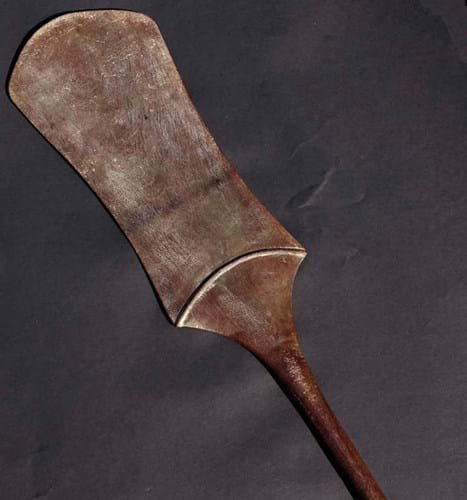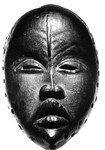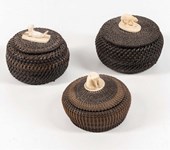Included in the sale at Lindsay Burns (20% buyer’s premium) in Perth on August 4 was a group of greenstone (pounamu) artefacts consigned by the family of Rev Alexander Neil Somerville (1813-89).
He and his son William Francis Somerville had travelled to New Zealand in 1877-78 spending time in the Otago province and Dunedin: the city’s Somerville Street is named after him.
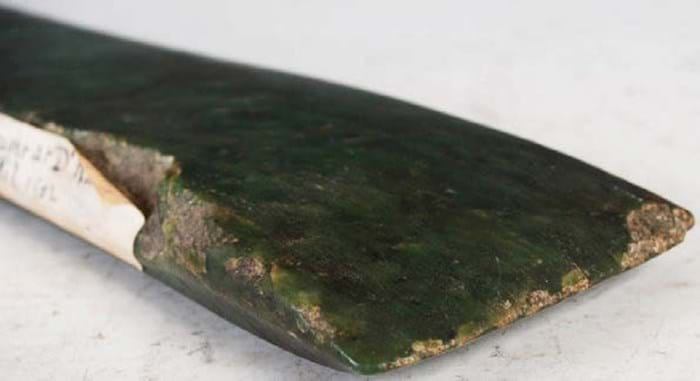
A greenstone Maori adze head – £4600 at Lindsay Burns.
Two phones and a number of online buyers competed for an 11in (27cm) long polished adze head (toki) with an old paper label reading Jade axe bought at D Rankine’s Sale Muthill, 1902.
With multiple chips to the blade, it is probably an ancient example from the Te Tipunga period (c.1200-1500) or before.
Estimated at £400-600, it took £4600 from a UK collector bidding online.
Handle shaped as head
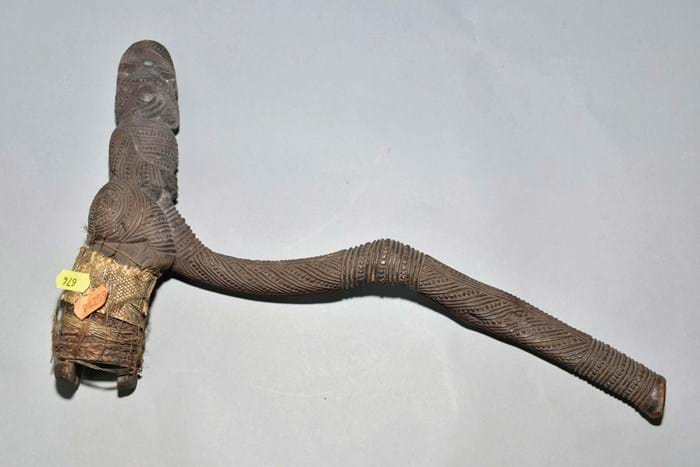
A carved Maori wood adze handle – part of a group of Oceanic artefacts sold for £4000 at Richard Winterton.
Another good example of Maori art surfaced at Richard Winterton (20% buyer’s premium) in Lichfield on August 17.
Foremost among a group of five Oceanic objects sold at £4000 (estimate £300-400) was a 16in (40cm) adze handle of the type that may once have housed a carved greenstone blade.
Together they made a toki poutangata – a ceremonial tool used on occasions such as the felling of a great tree for a canoe or the ridgepole of a meeting house.
While the blades were typically treated as tribal heirlooms, the wooden handles were often refashioned when a new chief was chosen.
This example, probably 19th century, was typically carved with a stylised human figure.
Dance paddle
On the same day at Claydon Auctioneers (19.5% buyer’s premium) in Buckinghamshire, a carved Polynesian dance paddle caught the eye of more than one bidder when it was pursued to £9500 against an estimate of £400-600.
The 2ft 4in (71cm) long paddle has an hourglass shaped blade and a handle with a hemispherical knop terminal, and is typical in form to the dance paddles from Tonga that are used in a ceremonial group dance known as the Me’etu’upaki.




